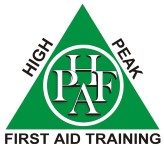The body’s need for oxygen is constant, but at high altitudes, the supply is limited. This mismatch between oxygen demand and supply can trigger several complex physiological responses aimed at adapting to the environment. Here’s an overview of the key impacts:
- Hypoxia and Its Effects:
- Hypoxia occurs when body tissues receive insufficient oxygen. At high altitudes, this is the primary challenge. Hypoxia affects the brain, lungs, muscles, and other organs, impairing function and performance.
- The Oxygen Cascade:
- As air is inhaled, oxygen passes through the lungs, diffuses into the blood, and is transported to tissues via hemoglobin in red blood cells. At high altitudes, each step in this process is less efficient because of reduced atmospheric pressure. This means less oxygen is delivered to cells, reducing energy production and leading to symptoms like fatigue, weakness, and breathlessness.
- Acclimatization Process:
- Over time, the body undergoes acclimatization to cope with reduced oxygen:
- Increased Red Blood Cell Production: The body increases the number of red blood cells to carry more oxygen. This process takes days to weeks.
- Increased Hemoglobin Concentration: Hemoglobin levels rise to maximize oxygen-carrying capacity.
- Enhanced Capillary Growth: More capillaries develop, particularly in muscle tissues, to improve oxygen delivery.
- Increased Efficiency in Oxygen Utilization: Cellular changes occur to improve the body’s ability to use available oxygen more effectively.
- Over time, the body undergoes acclimatization to cope with reduced oxygen:
- The Trade-Offs of Acclimatization:
- While acclimatization helps the body adapt, it also places stress on various systems:
- Increased Viscosity of Blood: More red blood cells make the blood thicker, which can strain the heart and increase the risk of clots.
- Dehydration Risk: The increased production of red blood cells demands more fluids, leading to a higher risk of dehydration.
- Energy Demands: The energy required to maintain higher breathing rates and circulation can leave the body fatigued and depleted of energy stores.
- While acclimatization helps the body adapt, it also places stress on various systems:
- Limits of Adaptation:
- Despite acclimatization, there is a threshold beyond which human physiology cannot sustain itself. For most people, altitudes above 5,500 meters (about 18,000 feet) become increasingly hostile, and long-term habitation at such elevations leads to chronic hypoxia. For this reason, climbers aiming for very high peaks must rely on supplemental oxygen.




